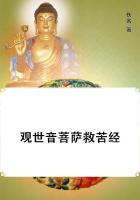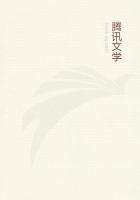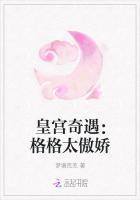VERSE 1. Now I say, That the heir, as long as he is a child, differeth nothing from a servant, though he be Lord of all;
VERSE 2. But is under tutors and governors until the time appointed of the father.
THE Apostle had apparently finished his discourse on justification when this illustration of the youthful heir occurred to him. He throws it in for good measure. He knows that plain people are sooner impressed by an apt illustration than by learned discussion.
"I want to give you another illustration from everyday life," he writes to the Galatians. "As long as an heir is under age he is treated very much like a servant. He is not permitted to order his own affairs. He is kept under constant surveillance. Such discipline is good for him, otherwise he would waste his inheritance in no time. This discipline, however, is not to last forever. It is to last only until 'the time appointed of the father.' "
VERSE 3. Even so we, when we were children, were in bondage under the elements of the world.
As children of the Law we were treated like servants and prisoners. We were oppressed and condemned by the Law. But the tyranny of the Law is not to last forever. It is to last only until "the time appointed of the father," until Christ came and redeemed us.
VERSE 3. Under the elements of the world.
By the elements of the world the Apostle does not understand the physical elements, as some have thought. In calling the Law "the elements of the world" Paul means to say that the Law is something material, mundane, earthly. It may restrain evil, but it does not deliver from sin. The Law does not justify; it does not bring a person to heaven. I do not obtain eternal life because I do not kill, commit *****ery, steal, etc. Such mere outward decency does not constitute Christianity. The heathen observe the same restraints to avoid punishment or to secure the advantages of a good reputation. In the last analysis such restraint is ****** hypocrisy. When the Law exercises its higher function it accuses and condemns the conscience. All these effects of the Law cannot be called divine or heavenly. These effects are elements of the world.
In calling the Law the elements of the world Paul refers to the whole Law, principally to the ceremonial law which dealt with external matters, as meat, drink, dress, places, times, feasts, cleansings, sacrifices, etc. These are mundane matters which cannot save the sinner. Ceremonial laws are like the statutes of governments dealing with purely civil matters, as commerce, inheritance, etc. As for the pope's church laws forbidding marriage and meats, Paul calls them elsewhere the doctrines of devils. You would not call such laws elements of heaven.
The Law of Moses deals with mundane matters. It holds the mirror to the evil which is in the world. By revealing the evil that is in us it creates a longing in the heart for the better things of God. The Law forces us into the arms of Christ, "who is the end of the law for righteousness to every one that believeth." (Romans 1:4.) Christ relieves the conscience of the Law. In so far as the Law impels us to Christ it renders excellent service.
I do not mean to give the impression that the Law should be despised. Neither does Paul intend to leave that impression. The Law ought to be honored. But when it is a matter of justification before God, Paul had to speak disparagingly of the Law, because the Law has nothing to do with justification. If it thrusts its nose into the business of justification we must talk harshly to the Law to keep it in its place. The conscience ought not to be on speaking terms with the Law. The conscience ought to know only Christ. To say this is easy, but in times of trial, when the conscience writhes in the presence of God, it is not so easy to do. As such times we are to believe in Christ as if there were no Law or sin anywhere, but only Christ. We ought to say to the Law: "Mister Law, I do not get you. You stutter so much. I don't think that you have anything to say to me."
When it is not a question of salvation or justification with us, we are to think highly of the Law and call it "holy, just, and good." (Romans 7:12) The Law is of no comfort to a stricken conscience. Therefore it should not be allowed to rule in our conscience, particularly in view of the fact that Christ paid so great a price to deliver the conscience from the tyranny of the Law.
Let us understand that the Law and Christ are impossible bedfellows. The Law must leave the bed of the conscience, which is so narrow that it cannot hold two, as Isaiah says, chapter 28, verse 20.
Only Paul among the apostles calls the Law "the elements of the world, weak and beggarly elements, the strength of sin, the letter that killeth," etc. The other apostles do not speak so slightingly of the Law. Those who want to be first-class scholars in the school of Christ want to pick up the language of Paul. Christ called him a chosen vessel and equipped with a facility of expression far above that of the other apostles, that he as the chosen vessel should establish the doctrine of justification in clear-cut words.
VERSES 4, 5. But when the fullness of the time was come, God sent forth his Son, made of a woman, made under the law, to redeem them that were under the law.
"The fullness of the time" means when the time of the Law was fulfilled and Christ was revealed. Note how Paul explains Christ. "Christ," says he, "is the Son of God and the son of a woman. He submitted Himself under the Law to redeem us who were under the Law." In these words the Apostle explains the person and office of Christ. His person is divine and human. "God sent forth His Son, made of a woman." Christ therefore is true God and true man.
Christ's office the Apostle describes in the words: "Made under the law, to redeem them that were under the law."

